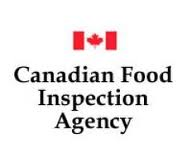 On October 3, 2014, The Packer reported that “as of October 1, 2014, Canadian produce sellers now have to have a surety bond that’s twice the amount of the claim, so selling $100,000 worth of product will have to have a bond of $200,000.” See Make your own PACA
On October 3, 2014, The Packer reported that “as of October 1, 2014, Canadian produce sellers now have to have a surety bond that’s twice the amount of the claim, so selling $100,000 worth of product will have to have a bond of $200,000.” See Make your own PACA
This bond requirement is found in Section 499f(e) of the Perishable Agricultural Commodities Act, which states, in relevant part, as follows:
“In case a complaint is made by a nonresident of the United States [Canadian produce seller]… the complainant shall be required, before any formal action is taken on his complaint, to furnish a bond in double the amount of the claim conditioned upon the payment of costs, including a reasonable attorneys’ fee for the respondent if the respondent shall prevail, and any reparation award that may be issued by the Secretary of Agriculture against the complainant on any counter claim by respondent….” 7 U.S.C. § 499f(e)
To be clear, the foregoing only applies to nonresident (e.g. Canadian) produce sellers who elect to bring a claim against a PACA licensee before the USDA. Importantly, the USDA’s PACA Division provides a two tier dispute resolution process. The first tier involves the filing of an informal complaint and the PACA division will work with both parties to reach an amicable resolution to a PACA dispute. The second tier involves filing a formal complaint against a PACA licensee wherein the complainant alleges that a violation of Section 2 of PACA has occurred and seeks a reparation order. While the USDA may not require a bond as a condition precedent to the nonresident complainant’s participation in the informal dispute resolution process, a bond will be required before the USDA will accept a formal complaint seeking a reparation order.
How Do I Avoid the Bond Requirement?
To avoid the bond requirement, the unpaid Canadian produce seller could elect to follow the these steps:
-
Preserve its PACA trust rights against the PACA licensee buyer by issuing a timely and properly formatted Notice of Intent to Preserve Trust Rights.
- Attempt to resolve disputes arising out of the produce transactions in-house or with the assistance of third parties (e.g. PACA counsel)
- File all complaints related to your unpaid produce transactions with a given PACA licensee in the U.S. District Court closest to the PACA licensee’s principal place of business. (e.g. if in Chicago, file in the Northern District of Illinois).
You must retain counsel to file a complaint in federal court, but you will not be required to post a bond if you elect to file a civil complaint in federal court. With that said, utilizing the USDA’s PACA Division for dispute resolution purposes is a cost-effective way to handle smaller (less than $15,000 – $20,000) PACA claims. Also, these same types of smaller claims may not justify the costs of retaining counsel to prepare and file a civil action in federal court. But, when you add the cost of the USDA’s double bond requirement to the regulatory equation (e.g. the cost of filing an administrative claim with the USDA vs. a civil action in federal court ) the scale of efficiency may now tip in favor of filing a civil action with an experienced PACA attorney who can work efficiently.
The bottom line is that the USDA’s double bond requirement only applies to administrative actions and Canadian produce sellers do have other options.

 On March 5, 2014, the Midwest Chapter of the Legal Marketing Association announced the winners of the 2014 Your Honor Awards at an event in Chicago, Illinois. The Your Honor Awards recognize excellence by marketing and communication practitioners in legal marketing, sales, business development, and design. Entries were submitted by legal marketing professionals on behalf of their respective law firms. Entries were submitted in LMA Midwest’s annual regional competition from law firms and legal service providers in Illinois, Indiana, Wisconsin, Missouri, Michigan and Kansas. Submissions were judged on a variety of criteria, including product, strategy and results.
On March 5, 2014, the Midwest Chapter of the Legal Marketing Association announced the winners of the 2014 Your Honor Awards at an event in Chicago, Illinois. The Your Honor Awards recognize excellence by marketing and communication practitioners in legal marketing, sales, business development, and design. Entries were submitted by legal marketing professionals on behalf of their respective law firms. Entries were submitted in LMA Midwest’s annual regional competition from law firms and legal service providers in Illinois, Indiana, Wisconsin, Missouri, Michigan and Kansas. Submissions were judged on a variety of criteria, including product, strategy and results. On September 30, 2013, Fresh & Easy Neighborhood Market, Inc. filed for chapter 11 bankruptcy protection in the District of Delaware and was assigned case number 13-12569. The Debtor’s voluntary petition estimates: (i) between 10,000 and 25,000 creditors; (ii) holding assets valued between $100 million and $500 million, and; (iii) liabilities between $500 million and $1 billion dollars. This case was assigned to Judge Kevin J. Carey.
On September 30, 2013, Fresh & Easy Neighborhood Market, Inc. filed for chapter 11 bankruptcy protection in the District of Delaware and was assigned case number 13-12569. The Debtor’s voluntary petition estimates: (i) between 10,000 and 25,000 creditors; (ii) holding assets valued between $100 million and $500 million, and; (iii) liabilities between $500 million and $1 billion dollars. This case was assigned to Judge Kevin J. Carey. The Official Committee of Unsecured Creditors in the Pro’s Ranch Markets’ bankruptcy case recently retained Freeborn’s Bankruptcy and Financial Restructuring Group to help maximize their recovery in this Chapter 11 case. Specifically, Freeborn possesses considerable experience representing official committees of unsecured creditors in chapter 11 cases involving retail grocers, food service companies, and food distribution companies. Because the attorneys in Freeborn’s Food Industry Team routinely represent these same types of food industry clients, we are highly familiar with the issues affecting both debtors and creditors in this space. This allows Freeborn to be incredibly effective when it comes to maximizing value for creditors.
The Official Committee of Unsecured Creditors in the Pro’s Ranch Markets’ bankruptcy case recently retained Freeborn’s Bankruptcy and Financial Restructuring Group to help maximize their recovery in this Chapter 11 case. Specifically, Freeborn possesses considerable experience representing official committees of unsecured creditors in chapter 11 cases involving retail grocers, food service companies, and food distribution companies. Because the attorneys in Freeborn’s Food Industry Team routinely represent these same types of food industry clients, we are highly familiar with the issues affecting both debtors and creditors in this space. This allows Freeborn to be incredibly effective when it comes to maximizing value for creditors. On July 1, 2013, Belle Foods LLC filed for Chapter 11 bankruptcy protection in the Northern District of Alabama.
On July 1, 2013, Belle Foods LLC filed for Chapter 11 bankruptcy protection in the Northern District of Alabama. On Mary 30, 2013, Tom Karst of The Packer published an article discussing the Pro’s Ranch Markets bankruptcy case and the $7.2 million dollars in anticipated PACA trust claims. Here is a link to Tom Karst’s article:
On Mary 30, 2013, Tom Karst of The Packer published an article discussing the Pro’s Ranch Markets bankruptcy case and the $7.2 million dollars in anticipated PACA trust claims. Here is a link to Tom Karst’s article: 
 In April of 2013, Nicholas Kluge wrote an article titled:
In April of 2013, Nicholas Kluge wrote an article titled: